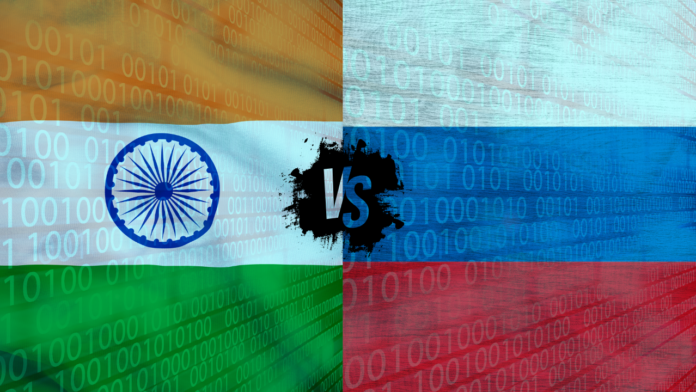SECRY – Cyber War Israel-Indian Hacker vs Palestine-Russian Hacker – In the ongoing Israel-Palestine conflict, hacker groups, including some linked to Russia, have extended the battleground into cyberspace.
Recent reports indicate that these hacker groups have launched cyberattacks on Israeli government and media websites bring “Israel Palestine Cyber War”. They are suspected of allying themselves with the Palestinian military group Hamas, which carried out a series of deadly attacks in Israel over the past week.
Russian Hackers Strike Israel with Massive A DDoS
Killnet, a group of self-proclaimed patriotic Russian volunteer hackers, made an announcement on Sunday (8/10) that they would target all Israeli government systems with Distributed Denial of Service (DDoS) attacks.
These DDoS attacks flood websites with an overwhelming amount of traffic, rendering them inaccessible. Killnet has blamed Israel for the bloodshed and accused the country of supporting Ukraine and NATO.
The group claimed responsibility for taking down Israeli government websites and the Shin Bet security agency’s site over the weekend. However, it’s important to note that the veracity of their claims is yet to be established
.
Anonymous Sudan Joins the Fray
Meanwhile, Anonymous Sudan, a hacker group suspected by cybersecurity experts as a front for Russia, declared their support for the Palestinian resistance.
They claimed responsibility for an attack on the Jerusalem Post website, briefly taking it offline on Monday (9/10) morning.
The newspaper stated in a post on social media that they had been subjected to various cyberattacks and managed to restore their website.
Mattias Wåhlén, a threat intelligence expert at the cybersecurity firm Truesec AB, suggested that these actions seemed more opportunistic than politically motivated.
The conflict has garnered significant attention, attracting groups like Killnet, who may be trying to exploit DDoS attacks for financial gain.
Hacking on Multiple Fronts
Wåhlén’s remarks suggest that this situation highlights Russia’s alignment with Hamas and against Israel.
Numerous other hacktivist groups have claimed to hack Israeli infrastructure, targeting websites related to power generation and missile warning systems. Many of these attacks remain unverified independently.
Cyberattacks on Israel’s Warning System
The cybersecurity company Group-IB revealed that a hacking group named AnonGhost had infiltrated a mobile application used to issue missile warnings to Israeli citizens during the conflict.
The hackers exploited vulnerabilities within the app to send false notifications, including phrases like “death to Israel” and “nuclear bombs are coming.”
Group-IB noted that the app appeared to have been removed from the Google Play Store, but it had been downloaded one million times before its removal. The developers did not respond to requests for comment.
AnonGhost released a statement on Telegram, announcing that they were targeting other Israeli apps that issue missile warnings and posted what they claimed to be the phone number of an Israeli cyber official, encouraging their supporters to “spam” it.
Frequent cyberattacks have targeted Israel, with some of them often attributed by Iranian hackers. However, it remains unclear if Iranian hacker groups are involved in the current conflict.
Indian Hackers Retaliate: Cyberattacks on Palestine such as Hamas’s Website and National Bank of Palestine
Not to be outdone, pro-Israel groups have also launched their own cyberattacks, targeting Palestinian organizations.
One group, self-identified as the Indian Cyber Army, claimed responsibility for shutting down the websites of the National Bank of Palestine and Hamas https://hamas.ps/ on a Sunday.
As of the next day, both sites remained inaccessible. Attempts to reach the bank for comment were unsuccessful.
The fact Indian hackers not only attack Palestine, but the Indian cyber establishment also has successfully defended Israel against these attacks, categorizing them as “denial of service” strikes.
According to Gil Messing, Chief of Staff at Check Point Software Technologies Ltd., an Israeli cybersecurity company, the cyberattacks have had a limited impact thus far.
He stated that while some groups had conducted DDoS attacks on news and government websites, there hadn’t been any significant or sustained attacks.
Rob Joyce, the Director of Cybersecurity at the National Security Agency, mentioned that there hasn’t been a major cyber component in this conflict.
Instead, Hamas has experienced small-scale distributed denial-of-service attacks and web defacements. There’s a hope that external parties will join in to amplify the message on behalf of Hamas.
The Ongoing Digital Battlefield
Israel Palestine Cyber War as the Israel-Palestine conflict rages on, the digital battlefield introduces a new dimension to the ongoing tensions. These cyberattacks illustrate that the conflict has transcended the physical realm and truly extended into the virtual world.
We are yet to fully comprehend the actual scope of these online confrontations and their repercussions. The international community watches with bated breath as hackers on both sides establish their presence in this modern battleground.



